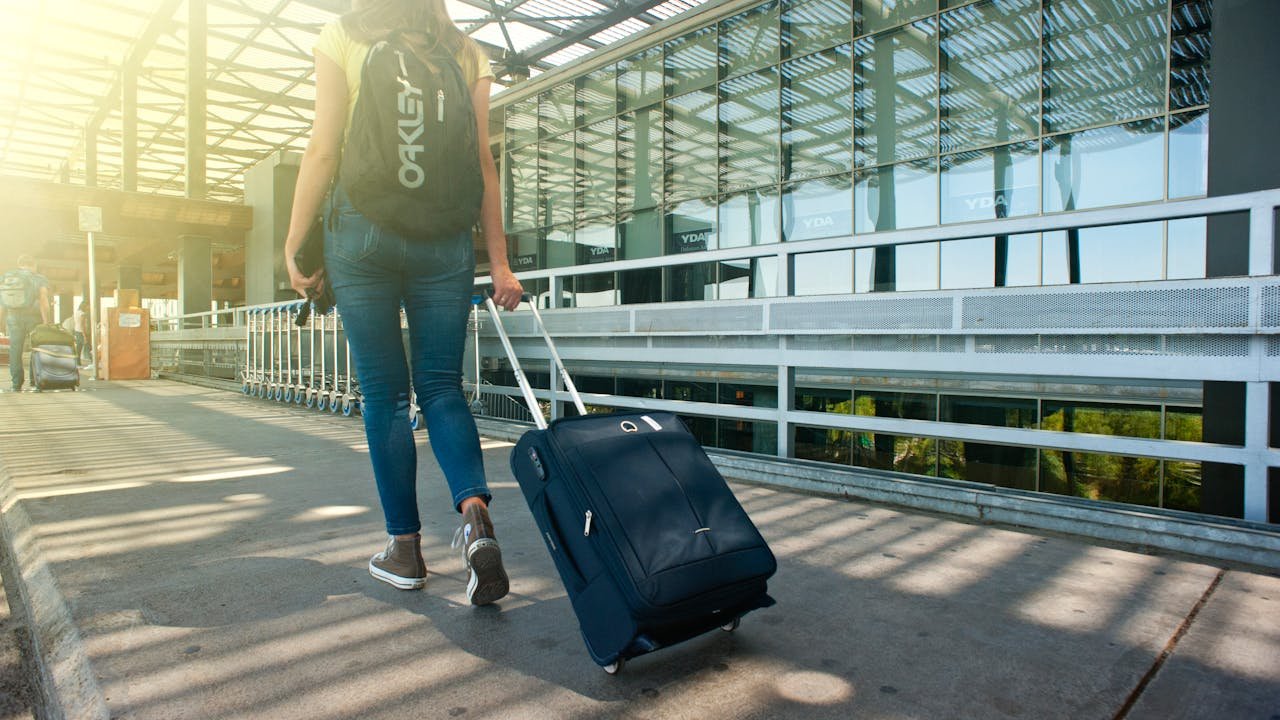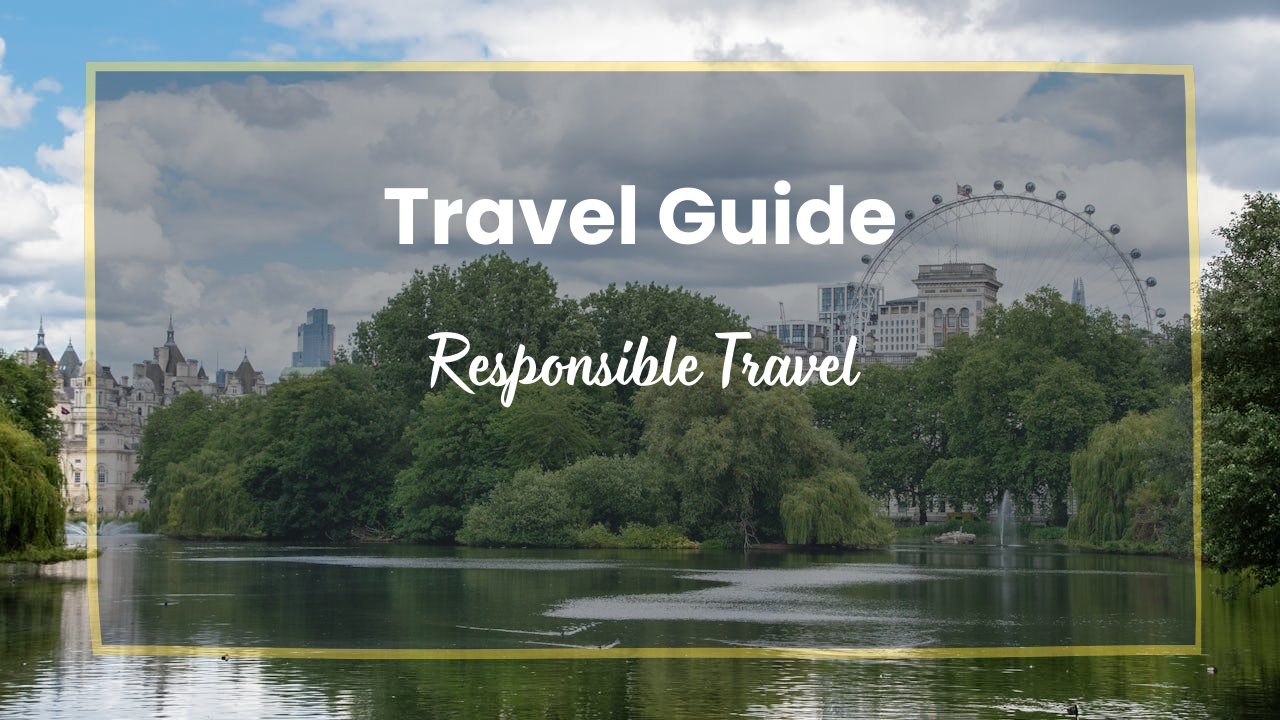Responsible Travel Guide for Sustainable Adventures
 Responsible travel is not just a trend. It’s an effort to make a positive difference in the places we visit and preserve them for future generations. This guide will teach you how to travel responsibly, explain why it matters, and show you how your travels can have a positive impact.
Responsible travel is not just a trend. It’s an effort to make a positive difference in the places we visit and preserve them for future generations. This guide will teach you how to travel responsibly, explain why it matters, and show you how your travels can have a positive impact.
What Is Responsible Travel?
Responsible travel is defined as tourism that reduces the negative impacts on social, economic, and environmental issues while increasing benefits to locals and improving the well-being of host communities. From booking to boarding, it’s all about respecting cultures and protecting natural habitats.
Travelers who adopt this philosophy:
- Support local businesses
- Reduce your carbon footprint.
- Respect for cultural norms
- Protect wildlife and ecosystems.
Tourism can be a positive force for both the people and the planet.
Why Responsible Travel is More Important Than Ever
Destinations can face both opportunities and challenges when it comes to tourism. Unmanaged tourism, while it can boost local economies and create jobs, can also lead to overtourism and environmental degradation.
Responsible travel is important for many reasons.
- Environmental Sustainability: Air Travel, Single-Use Plastics, and Mass Tourism strain natural resources
- Local economies: Tourism revenue is often more beneficial to large corporations than to small communities.
- Cultural Preservation: Travelers not informed about their heritage or traditions may unknowingly contribute to its destruction.
You can help preserve the charm and integrity of places by making informed travel decisions.
Tips on How to Be a Responsive Traveler

Responsible travel doesn’t have to mean giving up comfort or adventure. It means making conscious choices that respect wildlife, people, cultures, and the environment. This article will give you a detailed guide on how to be a responsible tourist at every stage of your journey.
1. Choose Eco-Friendly Transportation
The transportation sector is a major contributor to a traveler’s carbon footprint.
- Book nonstop flights when flying. Reducing the number of connections will reduce your carbon footprint. Takeoff and landing are where most emissions occur.
- You can offset your carbon emissions by using certified carbon offset programs such as Gold Standard and Cool Effect.
- Take Public Transport: Buses, subways, trams and even tuk tuks can be cleaner and offer a better experience.
- Bicycle or walk: Discover city centers and rural areas on foot or by bike. You’ll feel better, be healthier, and have zero emissions.
- Choose trains over planes: Short-haul flights are more environmentally friendly and scenic than trains in many areas (like Europe and Southeast Asia).
2. Stay in Sustainable Accommodations
The place you choose to stay can significantly impact the local environment and economy.
- Book Eco-Certified Accommodation: Look for lodging certified by Green Globe, EarthCheck Green Key, or LEED.
- Support community-based tourism: Homestays, lodges run by communities and similar organizations are more equitable in income distribution and offer cultural exchanges.
- Ask the right questions: Does the property utilize renewable energy? Do they compost or recycle? Does the company support local charities, employ locals, or hire locals?
- Avoid mega-resorts. They often consume excessive resources and can displace local communities. Smaller, independently-owned stays are more environmentally friendly.
3. Eat and Shop Local
Local food and products enhance your cultural experience and strengthen the community.
- Eat local and seasonal food: This will reduce the carbon footprint of importing foods and support local farmers.
- Avoid Imported Goods: Skip souvenirs made abroad. Buy directly from artisans instead of buying imported goods.
- Dine Responsibly—Choose restaurants that source their ingredients ethically or participate in initiatives such as farm-to-table.
- Ask questions: It shows that you are interested and promotes transparency.
4. Respect Local Cultures and Customs
Cultural sensitivity is one of the most important aspects of responsible travel.
- Do some research before you go. Learn about the culture, religion, and history of your destination.
- Dress appropriately: Many cultures require modest clothing in public or religious areas. If in doubt, cover your shoulders and knees.
- Practice Basic Language: Simple thank-yous and greetings in the native language can go a long way in building rapport.
- Ask permission before taking a photo, especially in rural settings or sacred places.
- Observe but don’t intrude. Festivals, local traditions, and ceremonies are not performances. Respectful observers are more respectful than disruptive participants.
5. Avoid Exploitative Wildlife Activities

The silent victims of mass tourism are animals.
- Say no to animal performances: Elephant rides, tiger selfies, or dancing monkeys are often cruel and abusive.
- Avoid Captive Shows and Petting Zoos: It is probably not if the show seems staged or unnatural.
- Visit Ethical Wildlife Sanctuaries. Choose places where animals are rescued and rehabilitated without human interaction.
- Take an Ethical Tour or Safari: Small group tours are led by naturalists certified in “leave-no-trace” principles who support conservation.
- Do your research. Look for certifications from organizations such as the Global Federation of Animal Sanctuaries and WTTC Wildlife Friendly Tourism.
6. Reduce Waste and Conserve Water
Reduce your consumption to protect the environment and keep destinations clean.
- Bring Reusables. Reduce single-use waste by bringing your own water bottles, metal straws and travel cutlery.
- Hotel Freebies are a waste of money. Instead, use solid toiletries and refillables.
- Water is scarce in many places, particularly remote islands and arid areas. Avoid taking long showers or doing unnecessary laundry.
- When hiking in natural areas or on a trip, make sure to pack out all the waste you bring. Composting toilets are available where they exist.
- Support waste reduction efforts: Many eco-conscious destinations have banned plastic or set zero-waste goals. Spread the word and participate.
Supporting Communities Through Responsible Travel
Being a responsible traveler means more than environmentalism–it’s also about empowering communities. Here are some ways you can make a meaningful contribution:
- Volunteering ethically: Select programs that employ and train locals, rather than replace them.
- Local guides are a great source of information and can benefit directly from tourism.
- Donate with care: Support community-based non-profits instead of giving money to street beggars or children.
Real World Examples of Responsible Travel

It’s important to examine real-world travel examples to truly grasp the potential and power of responsible tourism. These destinations have made sustainable tourism a cornerstone of their tourism industry. They show that travel can benefit both travelers and local communities without compromising cultural or environmental integrity.
Costa Rica – A Blueprint for Ecotourism
It has been a pioneer of responsible travel worldwide, having built a tourism industry around biodiversity conservation and sustainable development.
- National parks and biospheres, including the Monteverde Cloud Forest, Corcovado National Park and other famous places, protect more than 25% of Costa Rica’s land.
- Eco-lodges like Lapa Rivers Lodge and Pacuare Lodge run on renewable energy. They also fund local conservation efforts.
- By 2050, the country will be carbon neutral and produce over 98% of its electricity using renewable sources.
- Visitors can learn about the local ecosystems by participating in activities such as zip-lining, hiking and bird-watching.
Costa Rica shows that conserving nature does not mean restricting its access. It means creating tourism that respects the environment and regenerates it.
Morocco – Cultural Integrity Through Community Tourism
Morocco is a shining example of how responsible travel can preserve cultural heritage while empowering local communities–particularly in rural and traditional areas.
- Travelers can take part in guided tours of the medinas at Fes and Marrakech, which feature local guides certified to tell stories about history.
- Atlas Mountain villages offer homestays that allow guests to experience Berber cuisine, music, and traditions while supporting the host families.
- Education for All Morocco, a non-profit organization that promotes girls’ education, partners with tour operators to funnel tourism profits towards the programs.
- Fair-trade cooperatives in cities such as Essaouira, Chefchaouen, and others that support traditional crafts, like weaving, ceramics, and argan oil, benefit artisans.
Instead of diluting the local culture, responsible tourism in Morocco creates mutual respect and sustainable livelihoods.
India – Empowerment and Preservation in Ladakh
The Ladakh region in the Indian Himalayas is a great example of how remote destinations can flourish through community-based travel that focuses on cultural preservation and low-impact travel.
- Initiated by local NGOs, the Ladakhi Homestay Program connects travelers to rural households for an immersive stay. Families can earn an additional income while maintaining their traditional lifestyles and agriculture.
- Homestays are constructed using local materials, and the passive solar design minimizes environmental footprints within a fragile ecosystem at high altitude.
- Cooking classes, traditional farming methods, and participation in local festivals like Losar (Ladakhi New Year) are all ways to encourage cultural exchange.
- Snow leopard conservation efforts are directly funded by tour operators such as Snow Leopard Conservancy India and ROOTS Ladakh.
Ladakh offers a unique experience not only to tourists but also to locals. Remote communities are given a stake in tourism that they can be proud of.
Bonus: Additional Global Destinations that Support Responsible Travel
- New Zealand: Maori tourism experiences provide cultural insights while reinforcing native sovereignty and environmental stewardship.
- Slovenia: Ljubljana, the capital of Slovenia, is the greenest city in Europe and has received multiple awards for its sustainable urban planning.
- Bhutan: The Kingdom limits the number of tourists and charges a sustainable tourism fee daily to fund education, health care, and environmental protection.
Responsible Travel Resources and Certifications

Consult these organizations and certifications when planning your next vacation:
- Global Sustainable Tourism Council (GSTC)
- Travelife (for Sustainable Tour Operators)
- Leave No Trace is an outdoor ethics.
- B Corp-certified travel agencies
These standards encourage transparency and offer travelers eco-conscious choices that are verified.
Final Thoughts
Responsible travel does not require perfection but rather awareness and action. Whether you are exploring ancient cities or distant jungles, you can protect the beauty of our planet by making conscious choices.
FAQs
Why does responsible travel matter?
It is important to be a responsible traveller. Responsible travel can preserve local cultures and communities, support local economies, and preserve wildlife and the environment.
Is responsible travel overtourism?
Responsible tourism creates better places to live and visit, emphasizing “to live.” By definition, responsible tourism is the opposite of overtourism, which reduces the quality and experience of local residents as well as visitors.
What things would a responsible tourist do?
As tourism grows, protecting local cultures and ecosystems is more important than ever. Responsible travel means that you respect local customs and support small businesses. You also leave destinations in a better condition than when you arrived.
How to be a responsible traveler?
If you are exploring a forest, the backcountry, or a city, it is important to leave no trace. Respect wildlife, do not deface any property, follow the marked paths, and don’t steal seashells, plants, or artifacts.







